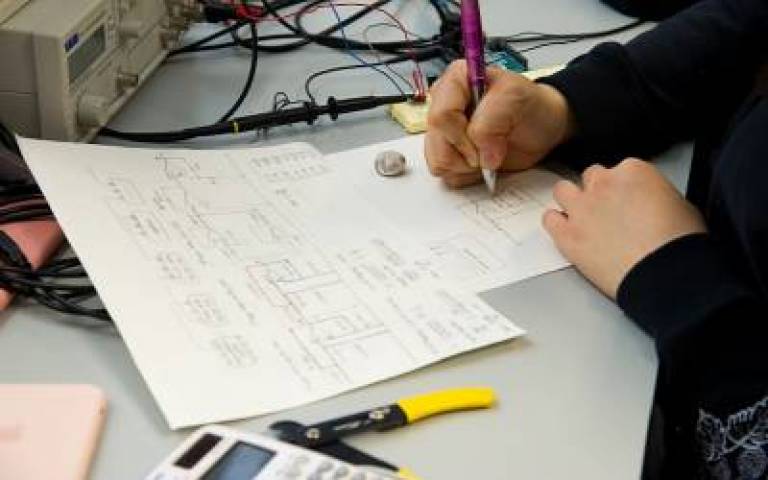Get smart about your summer revision
18 August 2020
Discover some of the best strategies for successful revision in this article by English Literature student Evie Robinson, who shares her top tips for acing late summer exam season.

Exam seasons can be super stressful, and it’s very easy to feel overwhelmed – but there are plenty of things you can do to make this mountain far easier to climb. Here are my five steps to getting your head down and making your revision a success ahead of your late summer assessment…
1. Plan your revision
It can be difficult to know where to begin when you have so much to learn. Start by breaking down exactly what you need to cover for each subject, and for each topic within that subject.
Then, figure out how long you have until you take your exams and allocate a topic or specific area you want to cover each day.
You should also block out the time you know you will be spending doing other things; video-calling family and friends, exercising and any other commitments you might have.
You may want to create a routine with your revision. For example, focusing on the same subject on the same day twice a week. Don’t worry if your timetable needs adapting; it should be a guide rather than a definitive plan that you must stick to. You may realise you need more time to cover a particularly difficult topic than you anticipated, or that you understand something rather quickly and so can decrease the amount of time you spend on it.
2. Find out what works for you
Everyone has different ways in which they learn most effectively, and it is important to find out what works best for you.
For example:
A visual learner is someone who responds to images, colours and diagrams. Revision methods could include:
- Colour-coding your notes, or making mind-maps with different colours
- Using different coloured revision cards
- Drawing diagrams, illustrations or pictures
An audio learner is someone who learns best through listening. Revision methods could include:
- Watching videos or listening to podcasts
- Recording yourself speaking your notes, and then listening back to these recordings
Don’t be afraid to try different techniques; finding out your best methods early on in your revision will help you maintain an effective standard of revision throughout your exams.
3. Little and Often
It is scientifically proven that short bursts of focused revision are far more effective than long, drawn-out sessions. The brain can only maintain a high level of focus for a certain amount of time, and so it is important to take regular breaks.
You may find it useful to set a timer for your revision sessions. For example, using the Pomodoro Technique, where you spend twenty-five minutes working followed by a five-minute break; you will concentrate more on your revision if you know a break is coming. You can adapt this technique for any period of time. Here's a link to a helpful timer for this technique.
4. Practice makes perfect!
Learning the content for your exams is great, but you need to know what to do with it and how to apply it to your exam question, and the best way to do this is through completing past papers. This can seem like a very daunting task, but it’s easy to break it down. Start by looking at your question and creating a brief plan of what you would write. Then, move on to writing practice essays or completing past papers under timed conditions.
Be sure to check the marking criteria or ask your tutor to take a look at your work. It’s better to make mistakes now, so that you will have plenty of time to correct them before you sit the exam!
If you’re a UCL student, it’s a great idea to make use of the online past papers, available from the Library.
5. Take care of yourself
Exams are important, but so is your health and wellbeing. Take some time for yourself, to ensure you can go the distance during exam season and to stop you from burning out.
Rewards are a great way to motivate you and encourage you to keep focused. For example, for every hour of revision you do, spend 10 minutes watching your favourite TV show. Or, for every ten questions you get right, treat yourself to a chocolate!
But remember that rewards must come as a result of work; the more you work and can reward yourself, the more willing you will be to do your revision.
The most important thing to do during exam season is to believe in yourself. Exams are scary, but you can absolutely ace them if you work hard and put your mind to it.
Good luck!
Evie Robinson
 Close
Close

